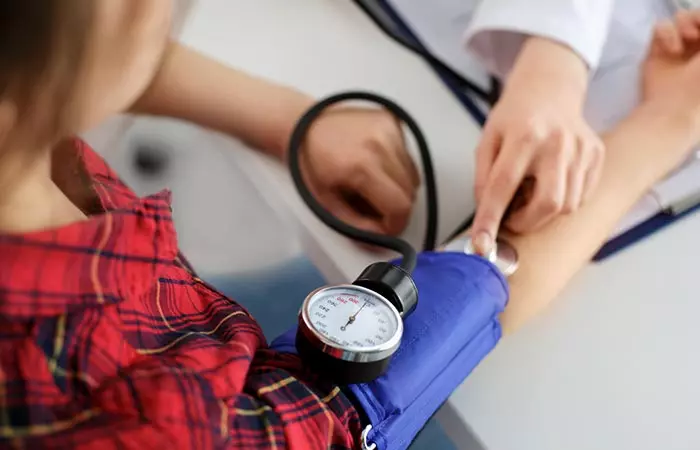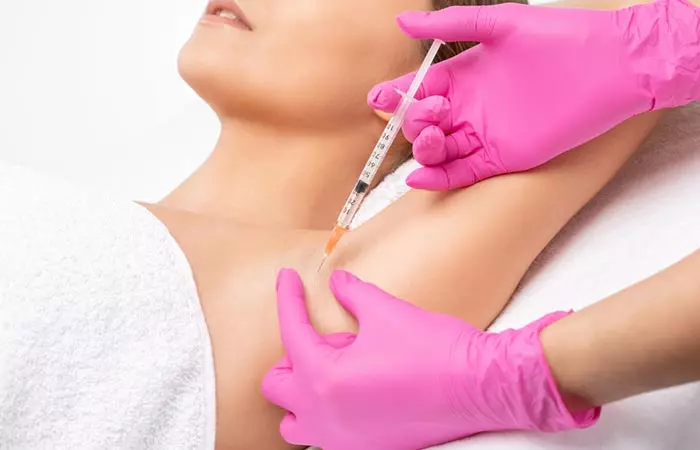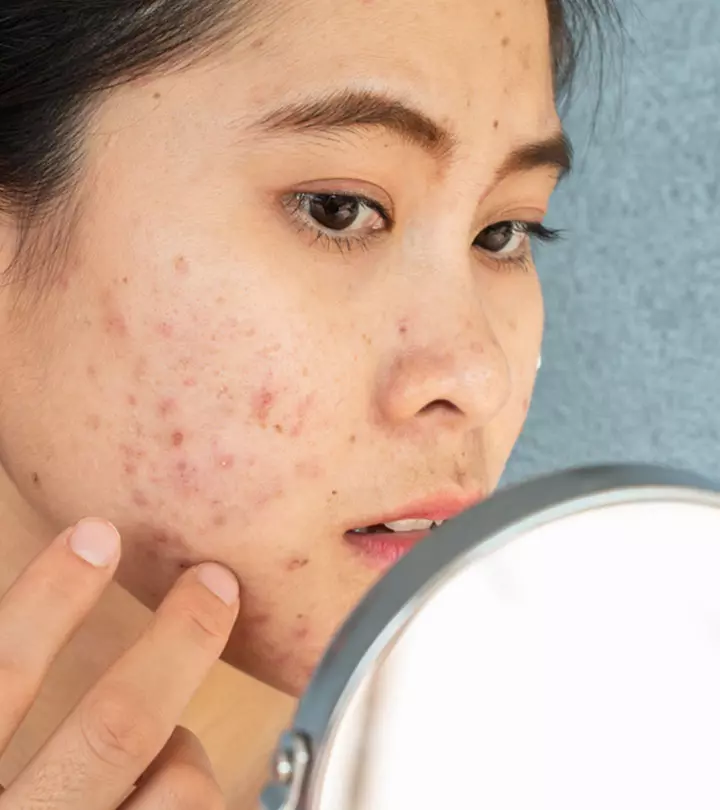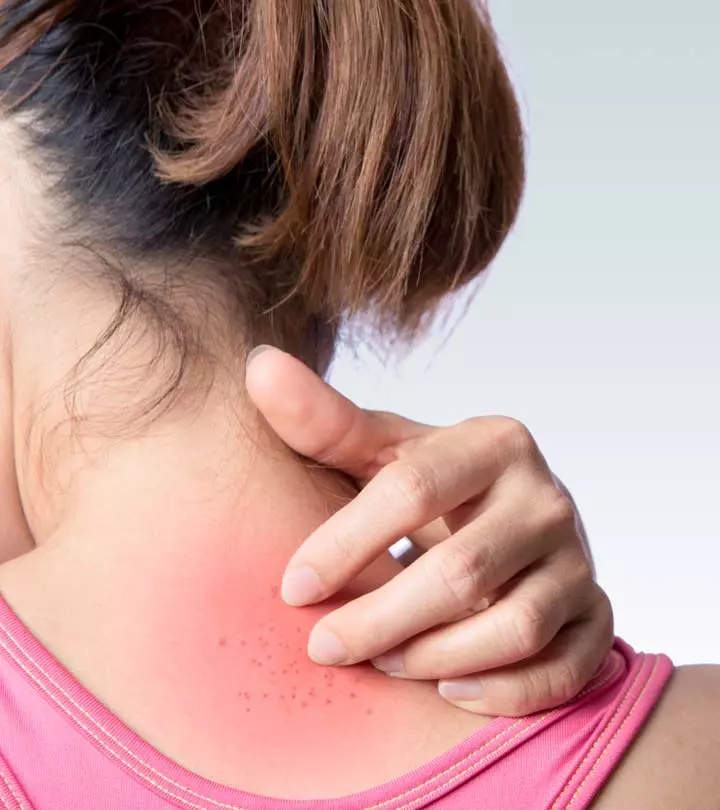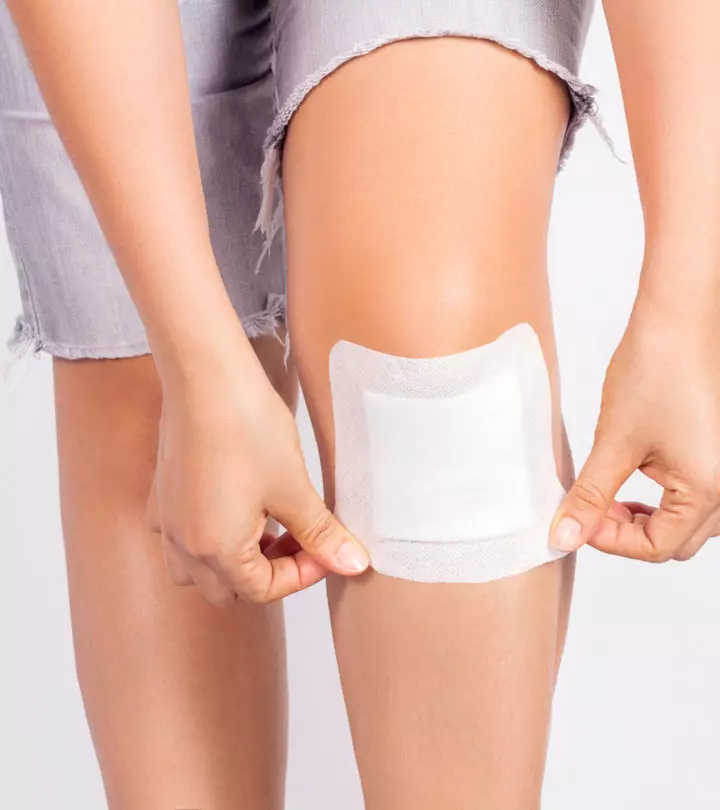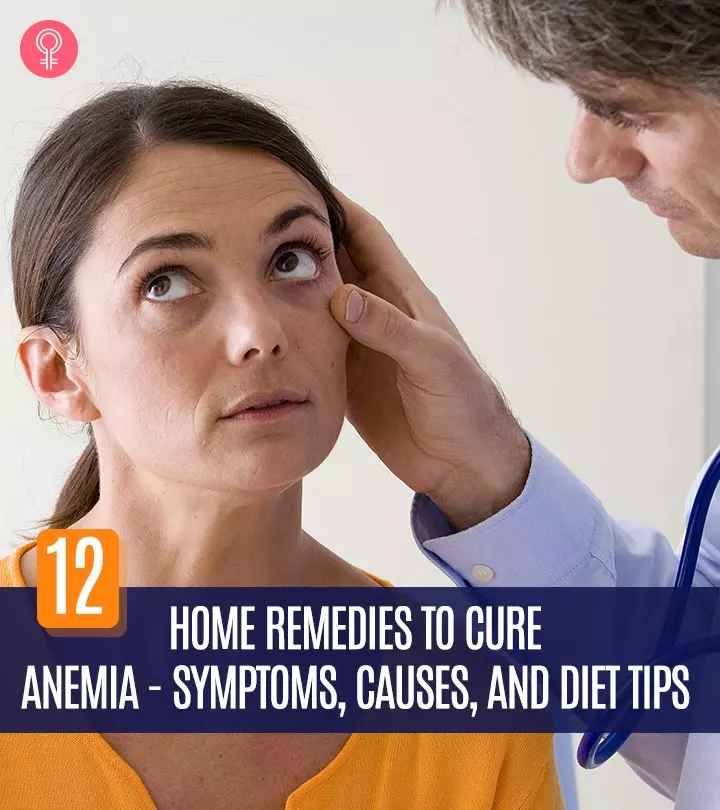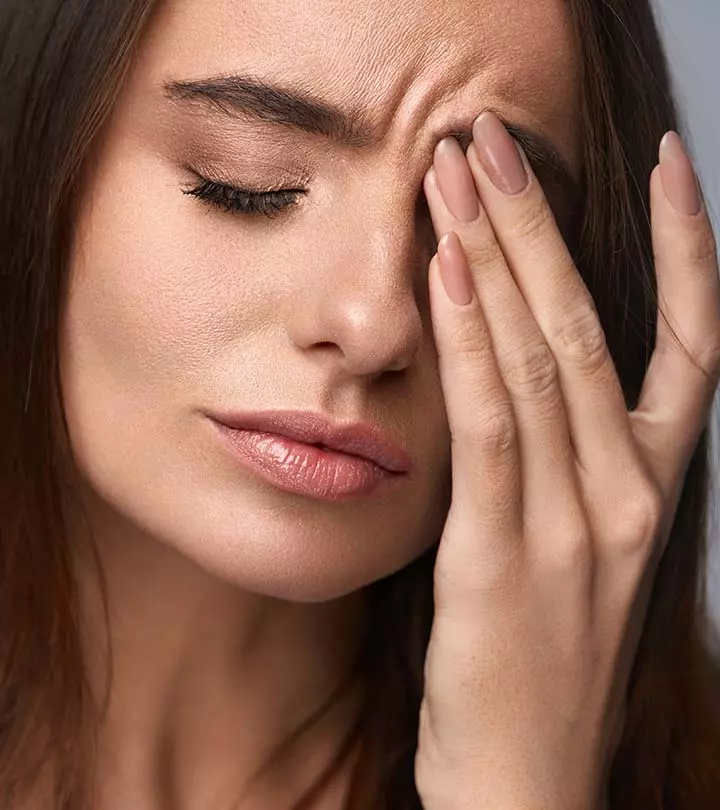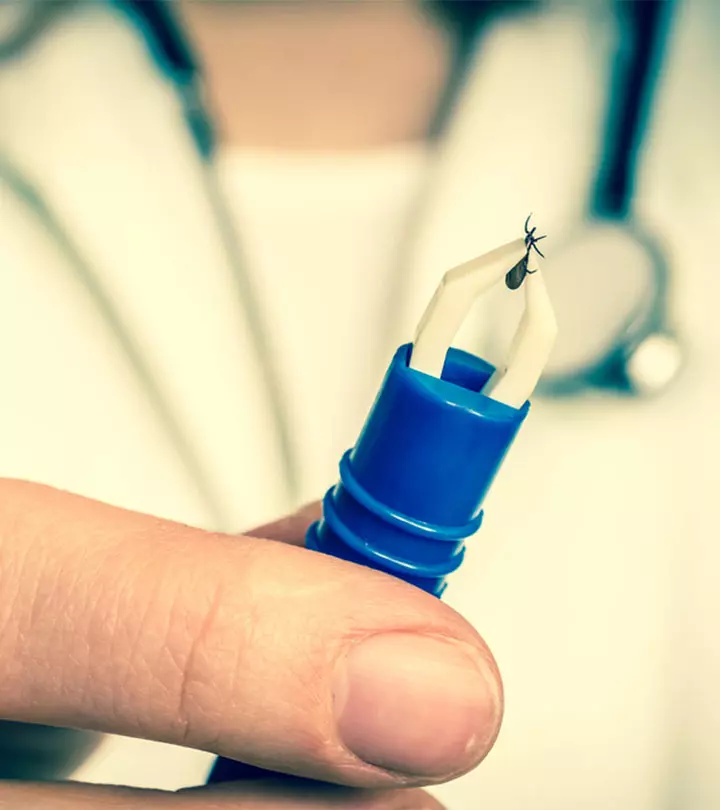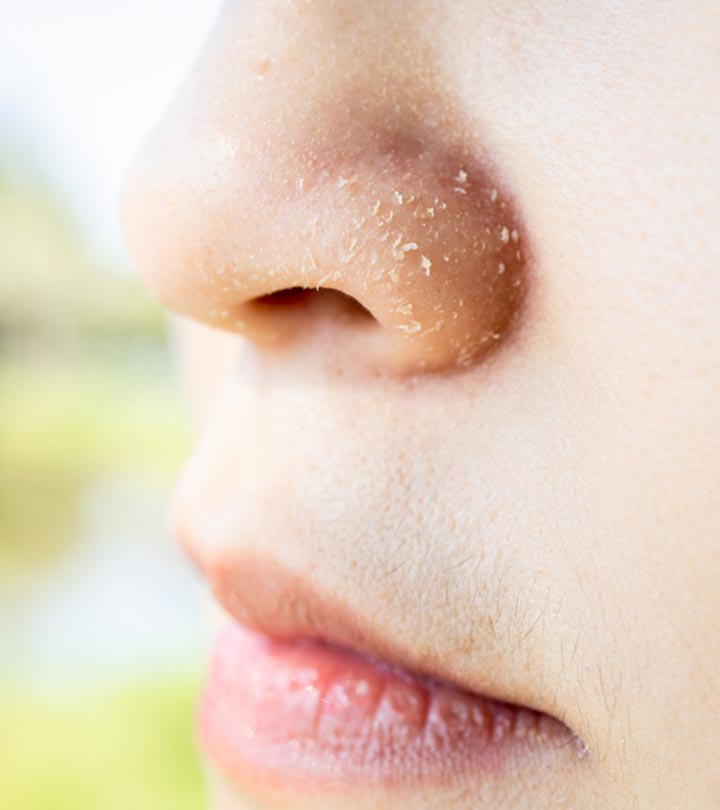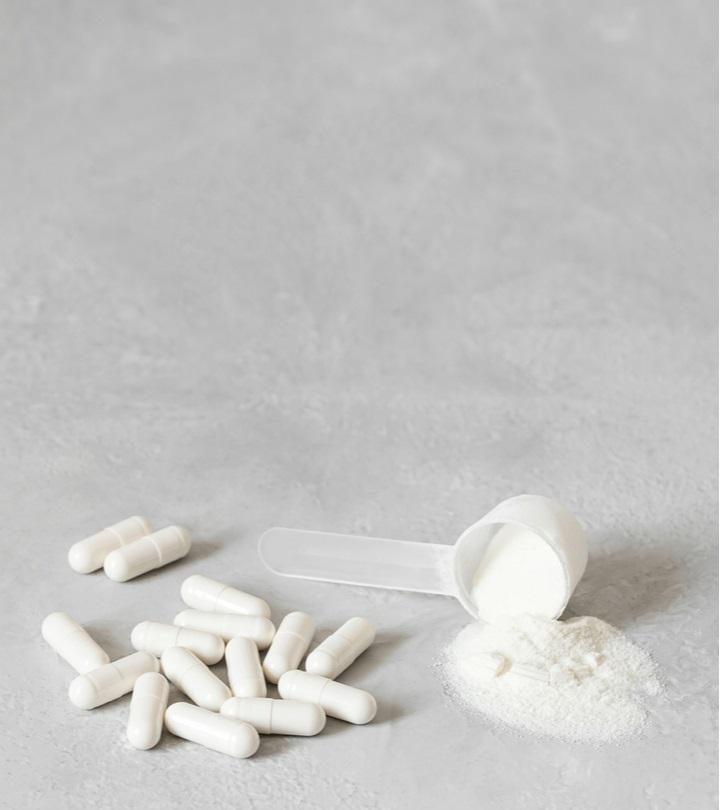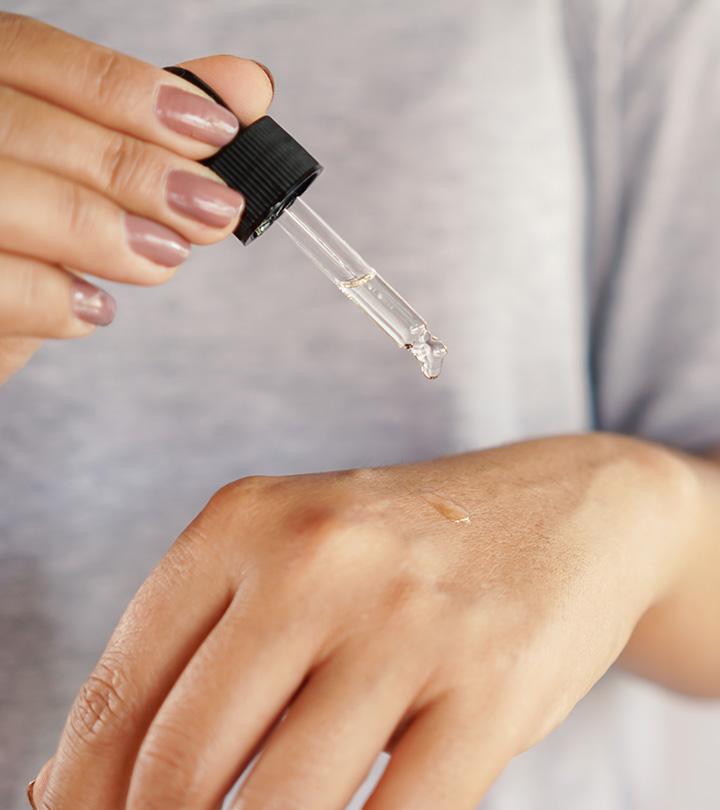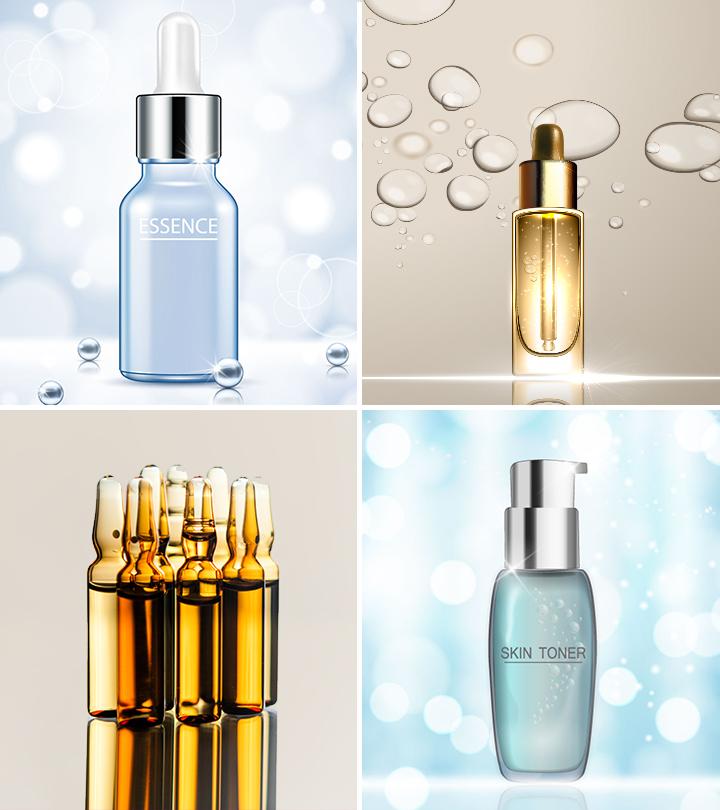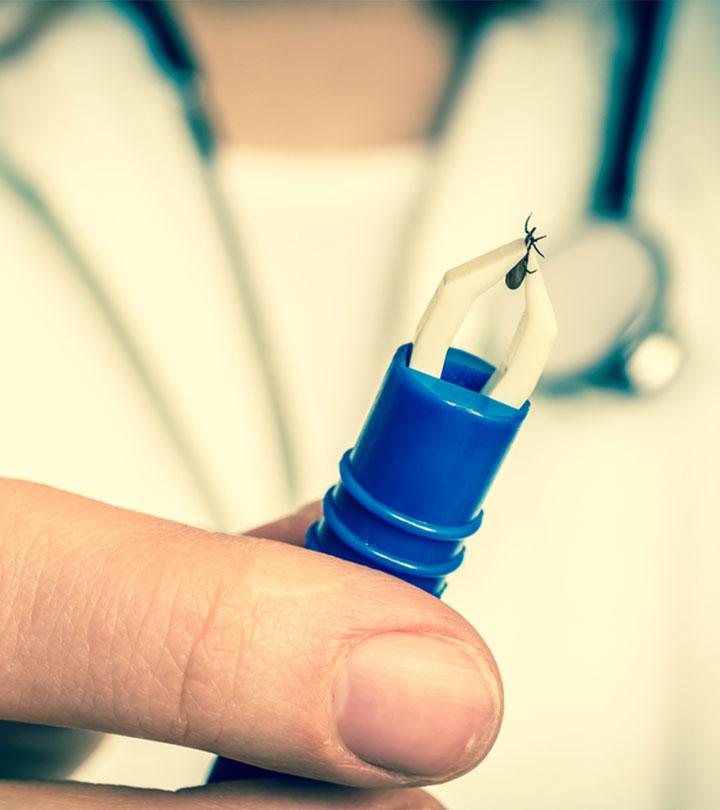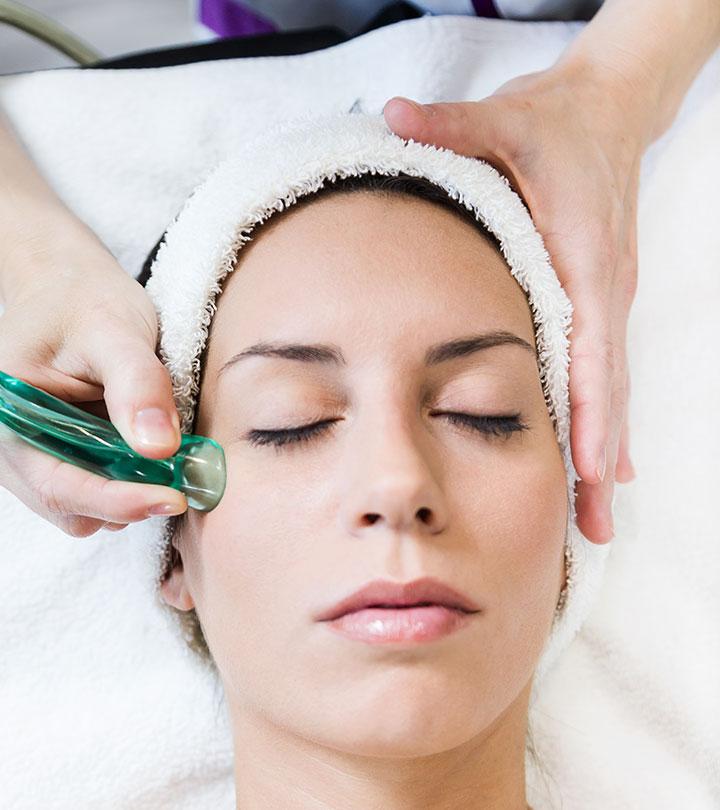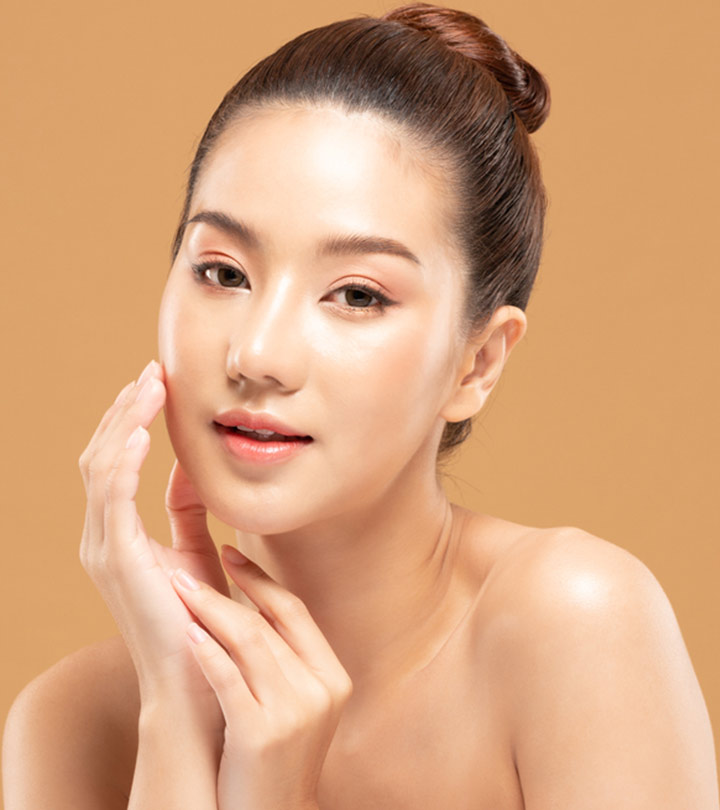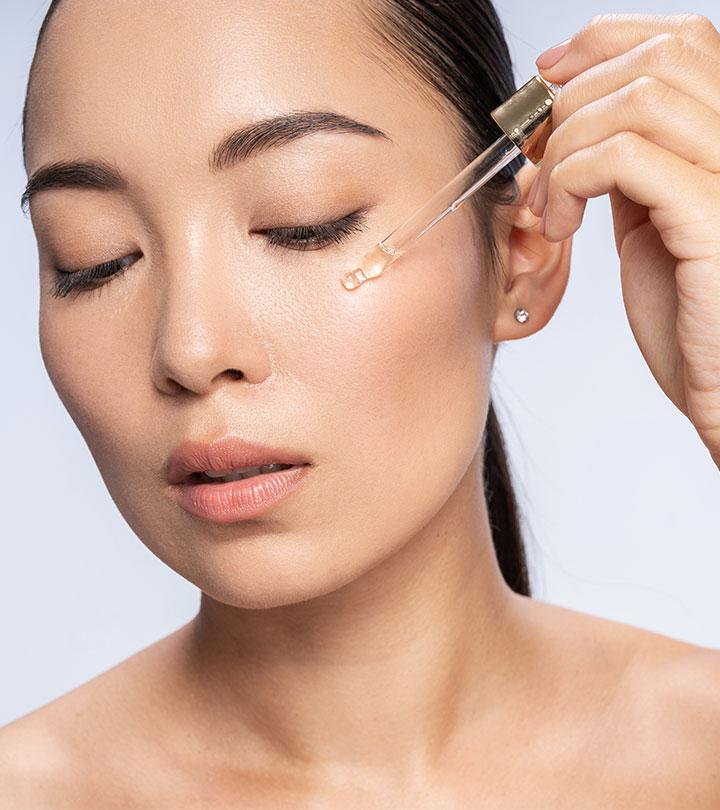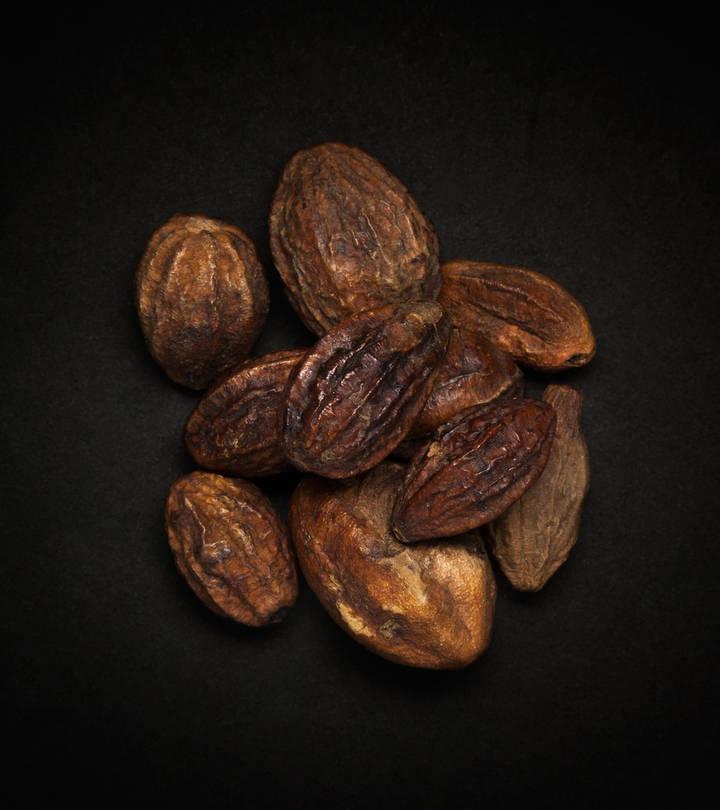Clammy Skin: Symptoms, Causes, Remedies, And Treatments
Keep a watch because sweaty skin may be a sign of low blood sugar levels or menopause.

Image: iStock
Does your skin often get wet and sweaty? Does it happen without an obvious cause? You may have clammy skin. In this condition, skin turns cooler and moist than normal.
In hot conditions, the body normally releases sweat to regulate its temperature. But clammy skin is a condition that occurs when people sweat for no reason. In other words, clammy skin means the skin turns cooler and more moist than normal.
Sweating when you are nervous is quite natural. But sweating excessively for no apparent reason might be a sign of an underlying health issue. Do you experience a clammy forehead, clammy palms, or a clammy body without any stressors like heat? In such a situation, you must consult a physician for a proper diagnosis.
In this article, we discuss this skin condition, including its causes, symptoms, and available treatment options. Keep reading.
 Fun Fact
Fun FactIn This Article
How Serious Is Clammy Skin?
Although clammy skin may not always indicate an underlying medical concern, you should keep an eye on your sweat levels. Excessive sweating could indicate a medical problem called hyperhidrosis, which necessitates medical treatment.
You might wonder why someone may sweat so much for no reason. In the next section, we will look at the possible causes of clammy skin.
Medical Conditions That Cause Clammy Skin
Skin that gets clammy suddenly or regularly for no specific reason could indicate a medical condition. These include:
1. Hyperhidrosis
Hyperhidrosis is excessive sweating that occurs even when the body does not require cooling. Only one or two body regions sweat while the other parts remain dry.
A recent survey conducted on 832 participants found the overall prevalence of hyperhidrosis was 17.9% (149/832), while self-reported prevalence was only 10.2% (85/832) in the dermatology outpatient department. Furthermore, out of 149 patients, 110 (73.8%) had primary hyperhidrosis and 39 (26.2%) and secondary hyperhidrosis.
Justine, a Youtuber, shares her experience with hyperhidrosis. She says, “Why I really wanted to make this video is to let other people who suffer from hyperhidrosis know that you’re not alone. I’ve had this for such a long time and I’m 30 now. I feel like I’ve really seen and taken the time to understand how hyperhidrosis has really affected my life growing up in both a positive and negative manner (i)”.
 Trivia
Trivia2. Low Blood Sugar
Sweating, chilly skin, and rashes along the hairline on the back of the neck are some symptoms of low blood sugar. Other symptoms include a rapid heartbeat, nausea, shakiness, uneasiness, and blurred vision.
3. Heart Attack
Skin that gets clammy suddenly may signify a heart attack. A blood clot that stops one of your coronary arteries can cause a heart attack. Coronary arteries supply your heart muscle with blood and oxygen. Your heart muscle cells can collapse if your heart doesn’t get enough blood or oxygen.
4. High Blood Pressure
Temporary situations like stress reactions, anxiety, or panic attacks can cause blood pressure to rise. Fatigue, sweating, and flushed skin are all symptoms of hormonal shifts, but they can also arise from various other disorders.
5. Internal Bleeding
Clammy skin can also be one of the symptoms associated with internal bleeding. Internal bleeding is more difficult to detect and diagnose. It is frequently caused by injury or trauma. Less evident sources can also cause internal bleeding. Gastritis, organ injury, or bleeding conditions are examples. These could be life-threatening ailments and warrant immediate medical help.
6. Shock
Clammy skin is one of the common symptoms of shock. Shock occurs when you don’t have enough blood circulating in your body. It is your body’s response to a sudden drop in blood pressure. It can be a deadly condition if not treated immediately.
Other medical conditions
- Menopause
- Hypotensioni A condition where the body has severe low blood pressure that causes fainting or dizziness due to lack of blood supply to the brain.
- Heat exhaustion
- Overactive thyroid gland
It is evident that clammy skin may also indicate a serious underlying condition. Therefore, one has to be aware of its symptoms.
Symptoms Of Clammy Skin
Common Symptoms
- Extreme sweating
- Dizziness
- Mood swings
- Irregular or absent periods
- Confusion
- Panic or fear
- Fatigue
- Itching
- Headache
- Weakness
- Pale skin
- Decreased urine output
Serious Symptoms
- Signs of a heart attack
- Shortness of breath
- Weak pulse
- Vomiting
- Chest pain or pressure
- Skin rash
- Swelling
- Discoloration of lips, fingernails, and mucous membranes
- Loss of consciousness
- Signs of shock
Treating the underlying behavioral and medical conditions that cause clammy skin may help reduce its symptoms. The following tips and home remedies may help.
Home Remedies To Help Reduce Clammy Skin Symptoms
The following suggestions may help you manage and reduce the symptoms of clammy, sticky skin.
- Exercise daily.
- Practice yoga and meditation.
- Keep your skin clean and dry.
- Eat healthy food.
- Manage blood sugars levels.
- Wear loose-fitting, breathable clothes.
- Wear sandals whenever possible.
- Change socks daily.
- Avoid high temperatures that result in heat exhaustion.
- Stay hydrated.
- Avoid caffeinated and alcoholic beverages.
- Talk to a healthcare provider about any changes in your sweating patterns.
Finding and treating the underlying issue is the most effective strategy to reduce clammy skin. In the following section, we discuss a few important treatment options for conditions that may cause clammy skin.
Treatment Options For Conditions That Cause Clammy Skin
1. Hyperhidrosis: Topical medications like aluminum chloride, iontophoresis, and botulinum toxin injections can help treat hyperhidrosis. In addition, systemic medications like glycopyrrolate, clonidine, and endoscopic thoracic sympathectomy surgery may also help (1).
2. Hypoglycemia: Severe hypoglycemia can be treated with intravenous (IV) dextrose followed by infusion of glucose. Readily absorbable carbohydrate sources like fruit juices should be given to responsive patients. A 1 mg intramuscular (IM) glucagon injection can be administered for patients unable to take oral agents. Once the patient is awake, a complex carbohydrate food source should be given to achieve sustained euglycemiai The medical term for a state where the body has normal blood sugar levels to function properly without any complications. (2).
3. Menopause: Menopause hormone therapy (MHT) is the most efficient treatment for acute climacteric syndromei A condition in menopausal women caused by a decline of the ovarian hormone levels, causing poor sleep, hot flushes, and mood swings. symptoms. It effectively prevents long-term estrogen deficiency. Vaginal administration of low doses of estrogen is a therapy of choice for the treatment of urogenital atrophy. Treatment may include estrogen or tibolone. Nonhormonal therapy relies on phytoestrogens, black cohosh extract, and serotonin reuptake inhibitorsi A group of medical substances that treat mental health issues like depression by raising the serotonin levels in the brain. (3).
Talk to your gynecologist if you are less than 45 years old and have problematic menopause symptoms.
4. Heart Problem: A heart attack necessitates immediate medical assistance. Call 911 or head to the emergency room in a life-threatening situation.
5. Heat Exhaustion: A person should discontinue physical activity if they experience heat exhaustion. Drinking fluids is recommended. Finding a cool, shady spot can be beneficial.
6. Anxiety Disorder: Hydrate and relax for a while if you are having an anxiety attack. Treatment is a must for anxiety disorder. It should be treated with psychological therapy, pharmacotherapy, or a combination of both. Cognitive-behavioral therapy is one such psychological therapy, and drugs include serotonin reuptake inhibitorsi A group of medical substances that treat mental health issues like depression by raising the serotonin levels in the brain. and serotonin-norepinephrine reuptake inhibitors. Pregabalin, tricyclic antidepressants, buspirone, moclobemide, and others are also used. After remission, medications should be continued for 6 to 12 months (4).
7. High Blood Pressure: Hypertensive patients must go for non-pharmacologic therapies. Lifestyle changes can reduce other disease risks and potentially eliminate the need for medication. However, they can go for pharmaceutical therapies when lifestyle changes show no effect. First-line medications include diuretics, angiotensin-converting enzyme (ACE) inhibitors/angiotensin receptor blockers (ARBs), beta-blockers, and calcium channel blockers (CCBs) (5).
8. Shock: If a person is in shock, lie him/her down on the back and raise their legs 30 centimeters high. Call your local emergency number or take the person to the hospital immediately. The initial approach is to stabilize the airways and ensure breathing with oxygen or oral mechanical ventilation if needed.
Peripheral IV or intraosseous infusion (IO) access should be obtained. Depending on the situation, central venous access may also be required. Immediate treatment with intravenous (IV) fluid should be initiated. Vasopressor therapy may be used to maintain tissue perfusion. Depending on the underlying etiology of shock, specific therapies might also be needed (6).
In rare situations, clammy skin may be a symptom of a life-threatening condition and can warrant a visit to the doctor. But when can this occur?
When To See A Doctor
If you notice any of the following signs or symptoms along with damp skin, seek medical help right away:
- Symptoms of a heart attack
- Shallow breathing
- Weak pulse
- Vomiting
- Chest pain or pressure
- Skin rash
- Swelling
- Discoloration of lips, fingernails, and mucous membranes
- Loss of consciousness
- Signs of shock
Word Of Caution: Consult a doctor immediately if you are not sure why you are sweating.
Infographic: Top 6 Underlying Causes Of Clammy Skin
Clammy skin is sometimes embarrassing, but it simply means your skin gets wet from sweat, which makes it damp, sticky, or cooler than normal. However, excessive sweating without a reason might be concerning. Wondering what causes it? Check out the infographic below to find the top 6 causes that lead to clammy, humid skin. Illustration: StyleCraze Design Team
Sweaty or wet skin is commonly referred to as clammy skin, and it does not usually signal a medical problem. You must, however, keep an eye on your sweat levels. Use the suggestions and solutions provided above. For instance, the most effective technique for reducing clammy skin is identifying and treating the underlying issue. Remember that excessive sweating for no obvious cause could be a sign of a more serious health concern. If this occurs, consult a doctor as soon as possible for a proper diagnosis and treatment. Your doctor can perform or request the tests needed to determine what is causing your clammy skin and assist you in identifying the source of the problem.
Frequently Asked Questions
Can dehydration cause clammy skin?
Yes, dehydration may cause the skin to become cool and clammy. But, if it is paired with another medical issue, like a fever, and left untreated, then the skin loses its clamminess and becomes hot and dry.
Does clammy skin mean fever is breaking?
Yes, if you have a fever and your skin becomes clammy due to sweating, then it might be a sign that your fever is breaking.
Does anxiety cause clammy skin?
Yes, in some cases, anxiety may cause panic attacks or excessive sweating, which leads to clammy and moist skin.
Can GERD cause clammy skin?
Night sweats are a common symptom of GERD, which may cause a clammy sensation all over your body, including clammy hands and clammy feet.
Key Takeaways
- Wet or sweaty skin refers to clammy skin, but frequent sweating may indicate an underlying medical condition.
- Fatigue, headache, weakness, and decreased urine output are common clammy skin symptoms.
- The skin may get clammy due to high blood pressure, hyperhidrosis, and low blood sugar levels.
- Practicing yoga and meditation and eating healthy food may help manage the symptoms of clammy skin.
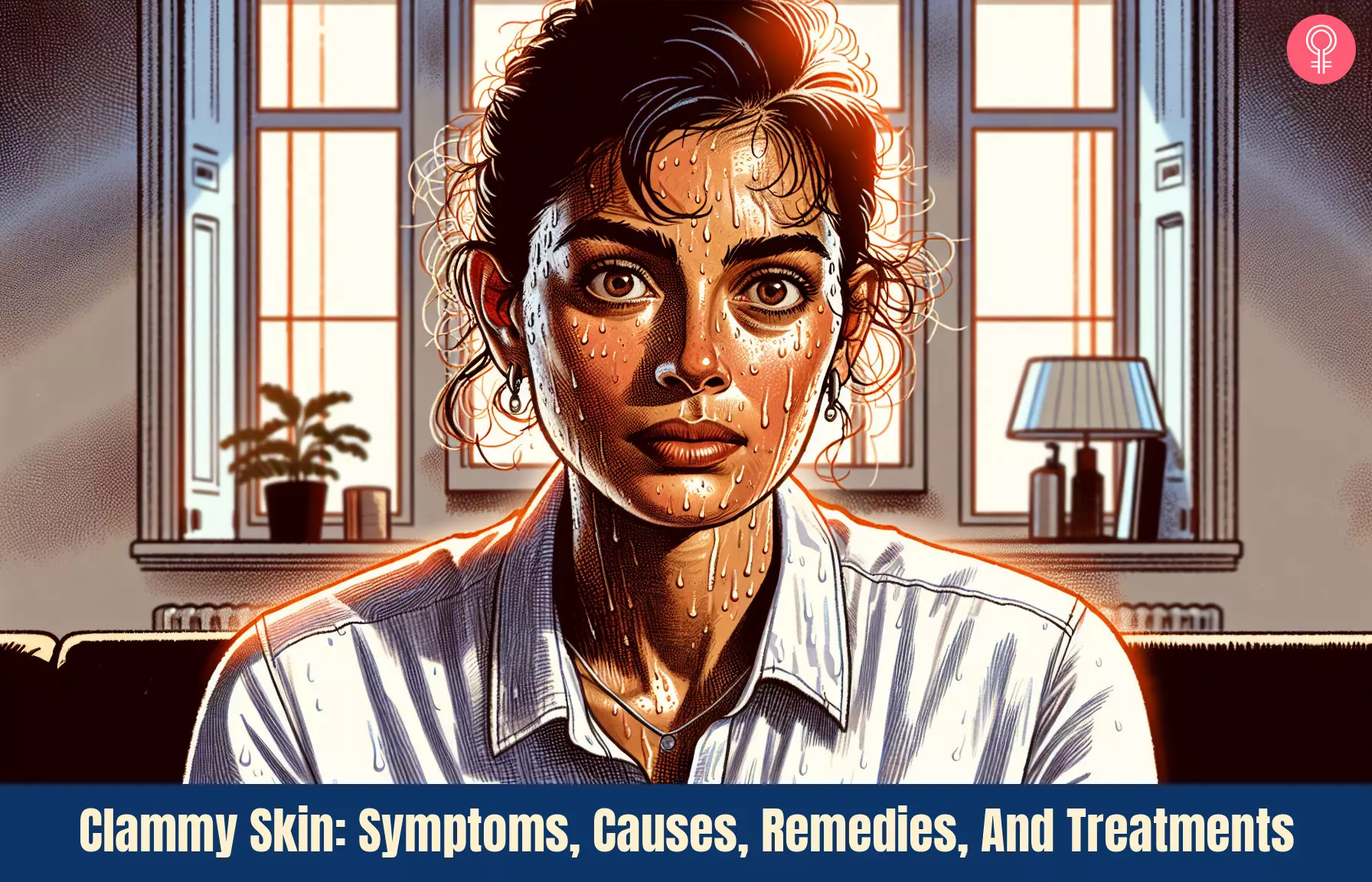
Image: Dall·E/StyleCraze Design Team
Feeling cold and clammy? Watch this video to learn more about the symptoms of clammy skin and how to treat it.
Personal Experience: Source
StyleCraze's articles are interwoven with authentic personal narratives that provide depth and resonance to our content. Below are the sources of the personal accounts referenced in this article.
i. My Disorder, A Sweaty Lifetime of Hyperhidrosis on my Hands, Feet, and Facehttps://www.youtube.com/watch?v=zzc2IbG2OnI
References
Articles on StyleCraze are backed by verified information from peer-reviewed and academic research papers, reputed organizations, research institutions, and medical associations to ensure accuracy and relevance. Read our editorial policy to learn more.
- Hydrolyzed Collagen—Sources and Applications
https://www.ncbi.nlm.nih.gov/labs/pmc/articles/PMC6891674/ - Beneficial effects of food supplements based on hydrolyzed collagen for skin care (Review)
https://www.ncbi.nlm.nih.gov/labs/pmc/articles/PMC7271718/ - Oral supplementation with specific bioactive collagen peptides improves nail growth and reduces symptoms of brittle nails
https://onlinelibrary.wiley.com/doi/10.1111/jocd.12393 - Collagen supplementation as a complementary therapy for the prevention and treatment of osteoporosis and osteoarthritis: a systematic review
https://www.scielo.br/j/rbgg/a/fk95TfhxB7mPsmqYRDdHH8K/?lang=en - The oral intake of specific Bioactive Collagen Peptides has a positive effect on hair thickness
https://www.nutrafoods.eu/index.php/nutra/article/view/9 - Risks of Skin Hair and Nail Supplements
https://www.ncbi.nlm.nih.gov/labs/pmc/articles/PMC7588165/ - Influence of caffeine and hyaluronic acid on collagen biosynthesis in human skin fibroblasts
https://www.ncbi.nlm.nih.gov/labs/pmc/articles/PMC4206198/
Read full bio of Dr. Sonam Jeswani Ramrakhiani
Read full bio of Anjali Sayee
Read full bio of Swathi E





